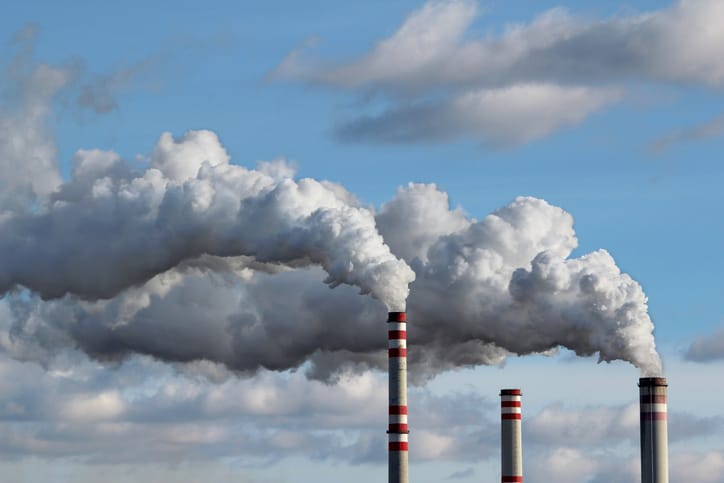Environmental pollution isn’t just having a terrible effect on our lungs – its impact can be felt in every area of our health, including our reproductive systems. Dr. Shanna Swan, an environmental and reproductive epidemiologist at Icahn School of Medicine at Mount Sinai in New York, reveals in her new book Countdown that not only are our fertility rates dropping as human beings, but men’s penis sizes are shrinking due to the chemical damage we’ve inflicted on the planet.
- Pollution is disrupting and in some cases destroying our hormone balance. The chemicals responsible for disrupting these important hormones are found in everyday items including plastic containers, cleaning products, electronics, body care products such as shampoos and skincare, and more. There are even PFAs, also known as “forever chemicals” that literally never degrade and just continue to amass in your body, causing irreparable harm.
- This is a serious emergency. One important and devastating fact Swan points out in her book is that sperm levels have dropped 60% since 1973. That’s an average of 1.25% drop per year, which is pretty scary! If we continue on this path, sperm levels could become nonexistent by 2045, Swan says, which isn’t very far away. That means no more reproduction and no more babies.
- Women are especially affected by this. It’s not just men that are seeing lower fertility rates – women are also suffering. Considering that women have a much smaller window in which they can have children in the first place, this is even more concerning. “In some parts of the world, the average twentysomething woman today is less fertile than her grandmother was at 35,” Swan writes in her book. “The current state of reproductive affairs can’t continue much longer without threatening human survival … It’s a global existential crisis.”
- Even men’s penis sizes are changing. Because of PFOAs and other chemicals, men’s penis sizes are shrinking across the board as well as the volume of the testes, Swan finds. While this may be more of a vanity issue than a practical one, the fact that human physiology is being irrevocably altered by environmental pollution is a serious concern and it’s unbelievable that more isn’t being done to stop it.
- Sexual desires are also impacted. As Swan explained in an interview with The Intercept, “Yes, we found a relationship between women’s phthalate levels and their sexual satisfaction. And researchers in China found that workers with higher levels of bisphenol A, commonly known as BPA, in their blood were more likely to have sexual problems, including decreased desire.”
- More legislation is needed to help curb these serious issues. At the moment, the US has very limited laws that regulates exposure to these dangerous chemicals. As per The Guardian, “a scientific study found phthalate exposure ‘widespread’ in infants, and that the chemicals were found in the urine of babies who came into contact with baby shampoos, lotions, and powders.” However, they remark that because of lobbying on behalf of these major corporations in the industry, lawmakers aren’t keen to act. There is the Pollution Prevention for Our Future Act, but even that is pretty limited. More needs to be done ASAP!



